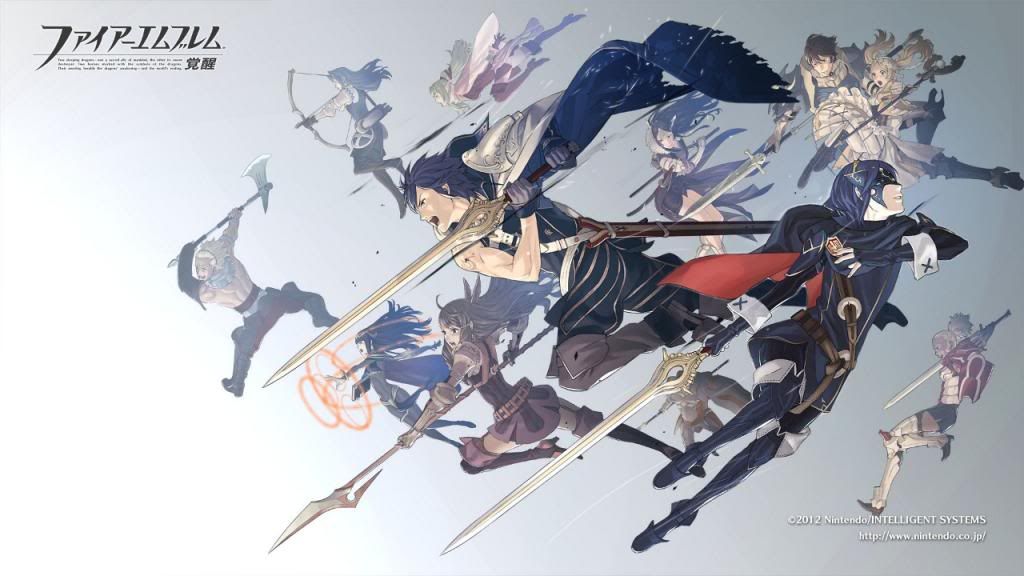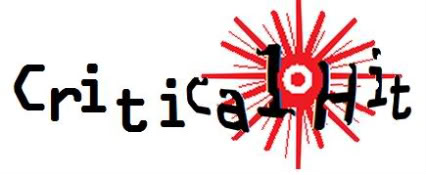
- Format: 3DS
- Unleashed: April 19, 2013 (EU), Out now (NA)
- Publisher: Nintendo
- Developer: Intelligent Systems
- Players: 1-2
- Site: http://fireemblem.nintendo.com/
Dark prophecy looms over an already troubled kingdom, challenged only by a band of noble heroes dedicated to the ideal that destiny is not their inevitable master. This is an old tale, just like the legacy of turn-based tactics that guide its struggles forward, but Fire Emblem: Awakening strives to prove that a true legend is but a retelling; a fresh imagining of a more ancient time.
This was a time when sprites would dance about a grid, waging war with nothing more than the size of their Str stat and a few frames of animation. Awakening embraces this proud heritage of the strategy RPG with both an open heart and mind. At first glance, it seems to merely create accessibility, opening the daunting genre to a fresh audience with its lush presentation and introduction of the Newcomer Mode (a removal of the usual permanence of death for units). But those fearing an experience hamstrung by simplicity should soon realize their folly, because Awakening deftly manages to not only retain but enhance the gratifying complexity of the epics before it.
Awakening weaves quite the epic itself, telling the tale of Chrom, a blue-haired hero who exudes a depth and charm alongside his unwavering goodness and chivalry. As prince of Ylisse (no, it doesn’t get easier to remember), Chrom faces not only the threat of neighbouring warmongers, but an undead plague of mysterious origins. Where the formula departs from franchise norms, however, is in letting you create your own hero: a tactician to fight and plan alongside the more brash Chrom. He or she can be customized with a limited number of options but has set plot arc that’s surprisingly fulfilling, given the potential for generic filler here. It feels like a natural addition, aided by the game’s fantastic dialogue. The writing and translation do wonders for the game’s massive cast of colourful adventurers, managing melodrama and comedy with equal vigour in a plot spanning the largest of wars and most trivial of conversations, all of which which make fantastic bookends for the even more fantastic battles within.

That mage is soon to be as dead as whatever that hat he’s wearing is.
These wars are waged as they’ve always been, with your small band of growing heroes pitted against overwhelming (or, on the right difficulty level, whelming enough) odds, forced to rely on one another to survive the turns ahead. Play is managed with a traditional grid and bird’s-eye view of the lightly-detailed battlefield. Stats, weapons, items, and careful positioning all play crucial roles, but the meat of the strategy relies on the impressive array of classes and how well you’re able to leverage their varying abilities with one another to both stay alive and level further ahead. This lends an exciting vibrancy to the warfare as you watch your pegasus knight swoop down on an unsuspecting sorcerer, the precious XP getting your bar that little bit higher. However, the real connection with your troops comes not from their individuality as soldiers, but as people. Every unit you gain is a distinct character, with their own history, artwork, and, most importantly, support conversations.
Each character has a number of possible pairings that, when grouped together, will allow for a series of conversations that can lead either to a greater friendship, or in the case of opposite genders, eventual marriage. These serve a dual purpose, the first being the conversations themselves. The highlight of the game’s writing, these delightful skits serve as touching, personal, and often humorous insights into the cast and their varied relationships. They’d be an appreciable enough addition with just a handful, but the sheer volume of possible combinations is staggering, making it a truly admirable exercise in character development that few games even strive for. The second purpose is of a more practical nature: the greater a pair’s relationship, the larger their stat bonus will be when fighting together, which plays into Awakening’s greatest mechanical innovation.
Pairing up isn’t a complicated idea: it allows you to attach one unit to another. While you temporarily lose the benefit of two separate units, stat benefits are now allocated, and the attached character has a chance to get in their own attacks when combat arises. It isn’t a complicated idea, but the extent to which it utterly shapes the battlefield and your ability to survive it can only be experienced by having your favourite allies saved and fiercest foes slain by its graces time and time again. Instead of serving as mere bait for advancing enemies, weaker units can hide behind the strength of their superiors, allowing for a much easier use of a varied army. The simple system is a beautiful weaving of narrative and gameplay, elegance and depth, that leaves you stupefied that it could’ve ever been absent from entries past.

Friendship vanquishes all! An important life lesson in Awakening.
Awakening also attempts a foray into multiplayer and DLC, but these lacking inclusions do more to confuse than contribute. Quite an opposite effect is found in the game’s slick, near-flawless presentation. Apart from the curiously olden sprites splayed across the grid, every last detail feels finely honed with an expert eye for style and efficiency. Information is displayed intelligently across the bottom screen, relegating actual control exclusively to the buttons. Combat is effortlessly slid both in and out of with thrilling (and skippable) depictions of swinging swords and sparking spells, all with lovingly-animated polygonal models and screen-popping 3D put to excellent use. The symphonic melodies, laudable on their own, adapt seamlessly from combat to quiet, creating a cohesive flow to the action that Fire Emblem has been sorely lacking since the beginning.
Fire Emblem: Awakening proves well its compelling case that the past can be the future’s greatest ally, and vice versa. A few well-considered additions and a badly needed re-imagining of the presentation is more than enough to rekindle Fire Emblem’s well-deserved status as a gaming legend, and create a truly inspiring modern classic.




Comments